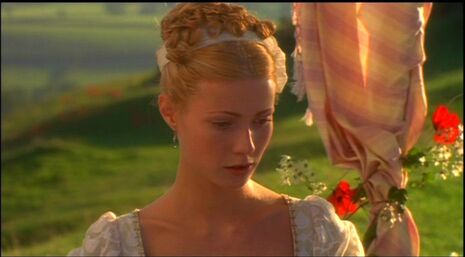An obsession with transgression – pride
This week, Jemma Slingo looks at Austen’s bride of pride, Emma

Seven Deadly Sins is a bit excessive, isn’t it? You’d think that five would be adequate. Particularly when I have to find a novel to align with each of them, and one of the sins is ‘sloth’, which authors don’t seem too wild about.
Anyway, in order to keep on top of the depravity, I sought external opinion regarding the book for this week’s sin: pride. However, deciding – given the theme – that a touch more self-assurance was needed, I promptly flouted the unanimous advice which was offered. As a result, Pride and Prejudice fans will have to look elsewhere. Too obvious; too ‘sparkling’; too associated with Keira Knightley striding through fields in empire-line dresses. Instead, I’ve found an altogether superior specimen: Jane Austen’s bride of pride, Emma.
“The real evils indeed of Emma’s situation were the power of having rather too much her own way and a disposition to think a little too well of herself”. Or so says Austen’s narrator, nimbly dancing around her heroine’s gargantuan ego. In fact, the real evils of Emma’s situation are a tendency to psychotically micromanage and a disposition so smug it’s a miracle that nobody launches a frenzied attack with the paper knife.
What is so brilliant about the novel, however, is the way in which Austen probes these psychological flaws and foibles. The narrative is dominated by dialogue, and every speech is tinged with hidden motives and warped degrees of self-awareness. Austen notices things we don’t even realise we’ve noticed, dissecting human character with a merciless scepticism. We laugh, but our laughter is tainted with unease; with the sad realisation that we are, in fact, just as irritating as Highbury clan. In this sort of psychological environment, the reader isn’t in the position to fling around accusations. Indeed, lured into judging the heroine, we display the very pride which we attach to Emma herself.
To focus on the novel’s didactic gambits, however, is misleading. Emma is one of the least morally priggish books you will read –an impressive feat given some of the literary gems it sits beside (A Letter of Gentile and Moral Advice to a Young Lady is among the racier of the titles). Beneath the archly delicate words of the narrator lies a stingingly satirical tongue.
Emma herself is its first victim, of course. However, Austen saves a capacious phial of venom for Mrs Elton, newcomer to Highbury and recent bride of ‘Mr E’. Pushy, conceited and – that glorious Austenian adjective – ‘pert’, she is a cauterised version of Emma herself. Moreover, in her treatment of Mrs Elton, Austen is more closely aligned with her heroine than ever before. With a dash of Emma’s irresistible malice, Austen rounds off Volume II with the words “Mr Knightley seemed to be trying not to smile; and succeeded without difficulty, upon Mrs Elton’s beginning to talk to him”.
For a novel dominated by satire, pride and irritation, however, what makes Emma so peculiarly powerful is the way it secures our emotional investment. She may be a pathologically delusional busy body, but we want Emma to be happy. It may not span a vast canvas, therefore, but on its “two inches of ivory”, the novel depicts an intense burst of life, with all the folly, laughter and feeling life contains.
And for that reason, I think Emma’s allowed to be a little smug
 Comment / Plastic pubs: the problem with Cambridge alehouses 5 January 2026
Comment / Plastic pubs: the problem with Cambridge alehouses 5 January 2026 News / Cambridge businesses concerned infrastructure delays will hurt growth5 January 2026
News / Cambridge businesses concerned infrastructure delays will hurt growth5 January 2026 News / Cambridge academics stand out in King’s 2026 Honours List2 January 2026
News / Cambridge academics stand out in King’s 2026 Honours List2 January 2026 News / AstraZeneca sues for £32 million over faulty construction at Cambridge Campus31 December 2025
News / AstraZeneca sues for £32 million over faulty construction at Cambridge Campus31 December 2025 Interviews / You don’t need to peak at Cambridge, says Robin Harding31 December 2025
Interviews / You don’t need to peak at Cambridge, says Robin Harding31 December 2025









